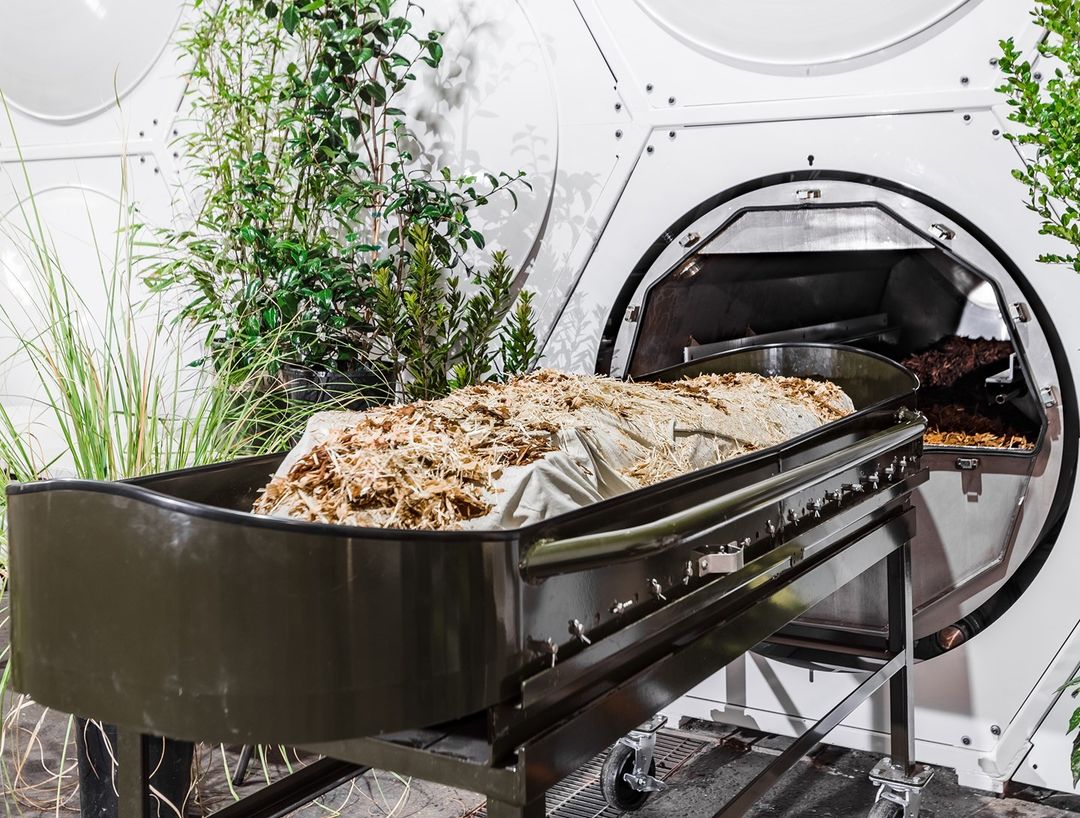The concept of celebrating and memorializing death in a more eco-friendly and sustainable way is not a brand new concept, but using the process of human composting is. Recompose, an ecological death care service based in Seattle, Washington, offers an approach to death that “connects the end of life to the natural world.”
Entrepreneur and designer Katrina Spade founded Recompose back in 2017. With Recompose, Spade aimed to culturally shift the paradigm of the death care system and transform death into something living and dynamic- like soil.
The cycle of natural organic reduction is galvanized by microbes that reside in our bodies and the environment. It begins with placing the body in a cradle full of wood chips, alfalfa and straw and then placed into a vessel with more natural materials. For 30 days, the microbes do their job and create nutrient-dense soil. Once the soil is ready to be removed from the vessel and cured, the soil can be used in gardens, forests or conservation land. Recompose’s cycle ends as the soil begins its journey to nurture the natural world.
The essence of practice is to return our bodies back to nature, creating a positive environmental impact- healing the climate, moving away from toxic practices, creating soil health through microbes, oxygen and plant matter.
Recompose uses the term, “laying-in,” when the body is placed into its vessel. It’s meant to represent the “moment your person’s transformation into soil begins.” Friends and family of the deceased person are invited by the Recompose team to join them for a modern take of a burial via video stream.
The safety of this process has been researched extensively by Washington State University, though natural organic reduction has been “practiced for decades by farmers as a way of recycling livestock back to the earth.” Due to the microbes creating temperatures more than 131 degrees Fahrenheit, the heat foolproof destroys any pathogens that could be unsafe or cause any disease when actually using the soil.
Recompose estimates that between .84 and 1.3 metric tons of carbon dioxide will be saved each time someone chooses organic reduction over cremation or conventional burial. In turn of choosing a more green method to death, the planet benefits.
The process of NOR, natural organic reduction, only became legal in the state of Washington in May of 2020. As for the rest of the U.S, it will take time for Recompose to educate and offer recomposition to other states. California, Colorado and Oregon are the current states making efforts to next take the leap of remodel the death process to become more sustainable and natural.
Recompose encourages people to “invest in climate action, support sustainable death care and leave with no regrets.” They believe in dedicating an appropriate amount of time to deciding your death care choices. “Thinking about your own death doesn’t make you morbid, in fact, it can be a source of joy, gratitude and peace of mind.”
All images in this article are courtesy of Recompose.







